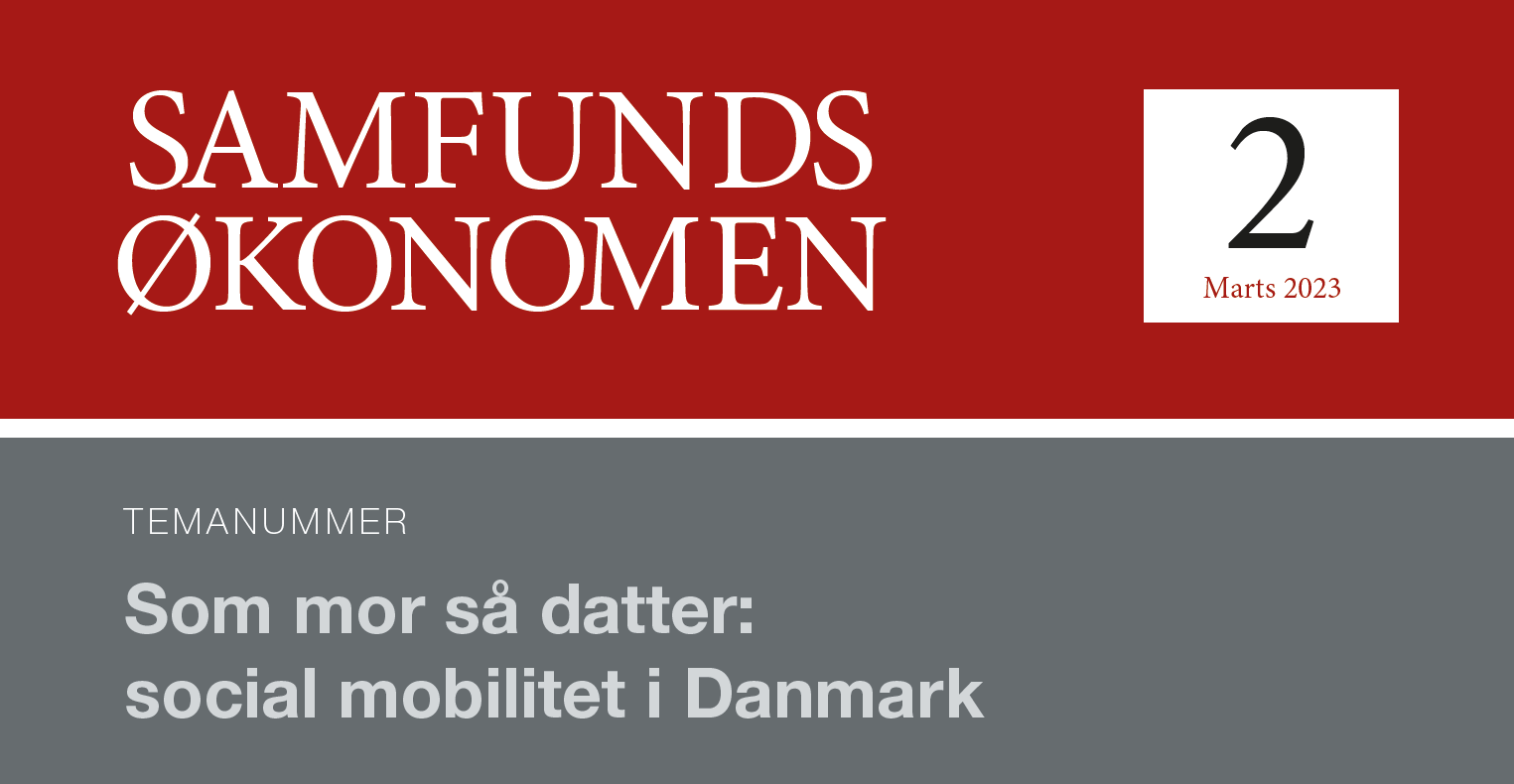Medical Treatments and Social Mobility
DOI:
https://doi.org/10.7146/samfundsokonomen.v2023i2.136915Resumé
Economists have long been interested in understanding the relationship between health and socioeconomic outcomes. Existing research consistently links poor health during early childhood to worse well-being in the long-run, including health, educational attainment, and labor market outcomes (Almond and Currie, 2011; Almond, Currie, and Duque, 2018; Currie et al., 2010). Growing evidence also indicates that child health shocks affect the socio-economic outcomes of other family members, such as parental labor supply (Gunnsteinsson and Steingrimsdottir, 2019; Breivik and Costa-Ramón, 2022; Eriksen et al., 2021; Adhvaryu et al., 2022), parental health (Burton, Lethbridge, and Phipps, 2008; Adhvaryu et al., 2022), and sibling academic achievement (Black et al., 2021). A natural question then is whether medical care aimed at improving childhood health may alleviate or eliminate these negative long-run consequences.
Downloads
Publiceret
Citation/Eksport
Nummer
Sektion
Licens
*Tidsskriftet Samfundsøkonomen er et open access tidsskrift, og alle artikler udgivet af Samfundsøkonomen er licenseret under en Creative Commons Navngivelse-IkkeKommerciel-IngenBearbejdelse 4.0 International Licens, CC BY-NC-ND.

